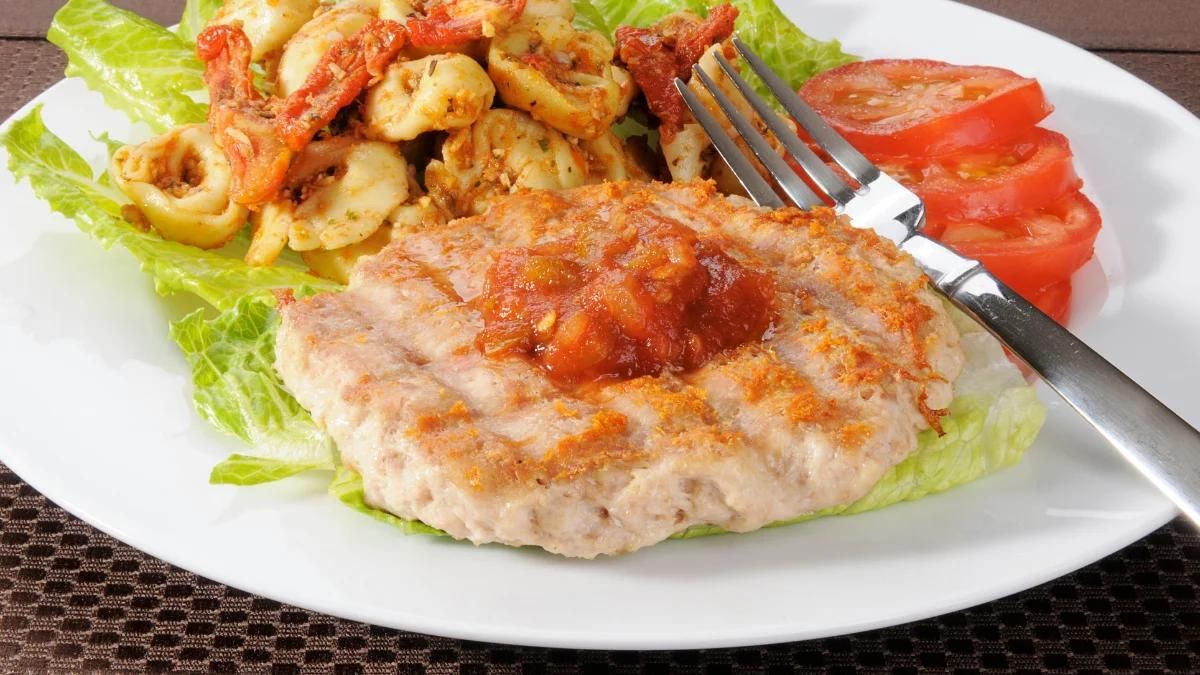How Long Can Cooked Ground Turkey Sit Out?


When handling any meat, especially poultry, you need to be very cautious as it can deteriorate easily. I always give it my best to use up all the leftovers in due time, but sometimes, this is simply impossible. Due to busy lives, many people prepare abundant amounts of food in advance to cut prep time when in a hurry, especially for meat. It is safe to store your turkey to use later, but what if you forget and leave it at the counter for a whole night? The main question is: How long can cooked ground turkey sit out?
Cooked ground turkey is only risk-free to stay at ambient temperature for shorter than 2 hours due to rapid bacterial growth at 40 to 140 °F. However, it is safe to store in the fridge for 3 days and freezer for 3 months, depending on the way you store it.
Meal prep will only make your life easier, but when it comes to storing, all available information can be a little overwhelming. Below, I tried to break it up into pieces so it’s easier to remember and understand. So, read on to find everything you need to know about storage, lifetime, and how to know if it’s bad, all in one place. Let’s go!
How to Store Cooked Ground Turkey?
Storing turkey correctly is key to keeping it safe to eat. Poultry is immensely fertile ground for developing many bacteria, like salmonella, E. coli, Yersinia, and more. They grow rapidly at a temperature between 40 and 140 °F, so store your food on lower and heat at higher temperatures (165 °F as an optimum). [1]
Storing cooked ground turkey is as simple as storing any other food. There is a whole spectrum of different food containers suitable for storing and/or freezing. Here’s a little list to help you choose the one that works for you.
The best containers for storing meat in the fridge are sealable glass containers. I love using these the best because they keep freshness, flavor, and aroma because they have airtight seals. Also, most of them are microwave-safe and very practical to take out, so you can always have a ready go-to lunch.
When cooking ground turkey, you’ll often add onion, garlic, and maybe sharp-smelling spices and herbs. Sealable glass containers are great since they are also scent-resistant, so you can leave them in the fridge without worrying about changing the aroma of other foods.
Other plastic-free options are metal containers. Those should be stainless steel, so they don’t absorb bacteria or percolate chemicals. Keeping the meat safe and delicious is not a question as they are both fridge and freezer-friendly.
Plastic canisters or, popularly, Tupperware are also an excellent alternative for storing. They can go in the fridge and the freezer, plus many of them are microwave-friendly. Choose Tupperware made out of high-quality plastic, but still make sure to store already cooled meat in.
They also protect the meat from spoiling, its savor, and smell. However, there is one significant shortcoming — if not taken care of right, they tend to adopt an odor of strong scents. So, for safety reasons, ditch the old containers and swap them with the new ones.
Another handy option for storing cooked ground turkey is a zip-lock bag. Zip-lock bags aren’t as safe as canisters when it comes to leaks and adopting other smells, but they are space-savers and very easy to store, especially in the freezer. They are undoubtedly better for freezing than a cooling option.
Besides, such silicone bags are an acceptable alternative for keeping turkey succulent while in the freezer. They are the best option among the bags, while the worst choices are freezer bags, no doubt. Silicone keeps the meat free of mixed smells and leakage, so you can use such containers in the refrigerator, too.
Avoid using regular plastic bags as they have flimsy textures, and even the tiniest rip will end up in cleaning greasy trails. If you have no other option, place the plastic plate under it, even in the cooler. You can remove it later, of course, for space minimalizing.

The most compact solution for deep-freezing is hands-down vacuum sealing. Vacuum preserves exceptionally well, and you’ll end up with 100% kept aroma, color, and flavor. Before vacuuming, make sure to completely cool down the meat to room temperature or in the refrigerator because of a certain possibility for bacteria growth. [2]
Cooked ground turkey can sit out for 3-4 in the fridge on paper, but it is best for you to eat it in a 3-day frame if not sealed properly. If you freeze it, it can last 2-5 months, but the optimum is three months. [3]
The same rule applies here, too; the better the storage container, the more time it can last iced. Just make sure the temperature is below 40 °F, as that’s the optimal temperature for cutting off bacteria growth.
Vacuuming will extend the turkey’s storage life as it withdraws oxygen. Still, at room temperature, some bacteria can grow without oxygen, so be careful. The best thing you can do is to vacuum and freeze your cooked ground turkey.
The good hack to remember, too, is to write down the date you prepared the meat on the label and store it in a moderately thin layer for it to freeze evenly.
How Long Can Uncooked Ground Turkey Sit Out?
As said before, 40 ° to 140 °F allows bacteria to reproduce with full tilt, so ground turkey has a maximum of 2 hours to sit out at room temperature before it becomes unsafe to consume.
How Long Can Ground Turkey Sit Out to Thaw?
Defrosting turkey at room temperature is only safe for two hours, basically as soon as the first layer of meat thaws and foodborne bacteria become active again. So, when thawing, either put your frozen ground turkey in a refrigerator, use a microwave, or put it in some cold water. [4]
How to Know if Cooked Ground Turkey Is Bad?
Check the four indicators to know if your turkey turned bad: smell, mold, texture, and color. If you notice any of these things, throw your cooked ground turkey away to be safe!
You’ll know it’s expired if the odor is sharp and acidic and its color is paler than you remember. If it’s moldy, you’ll see greenish velvety islands that scream to toss it in the trash. Also, a sticky, gooey, or muddy texture is highly unwanted.
How do you take care of your ground turkey leftovers? I would like to find out in the comments below!
